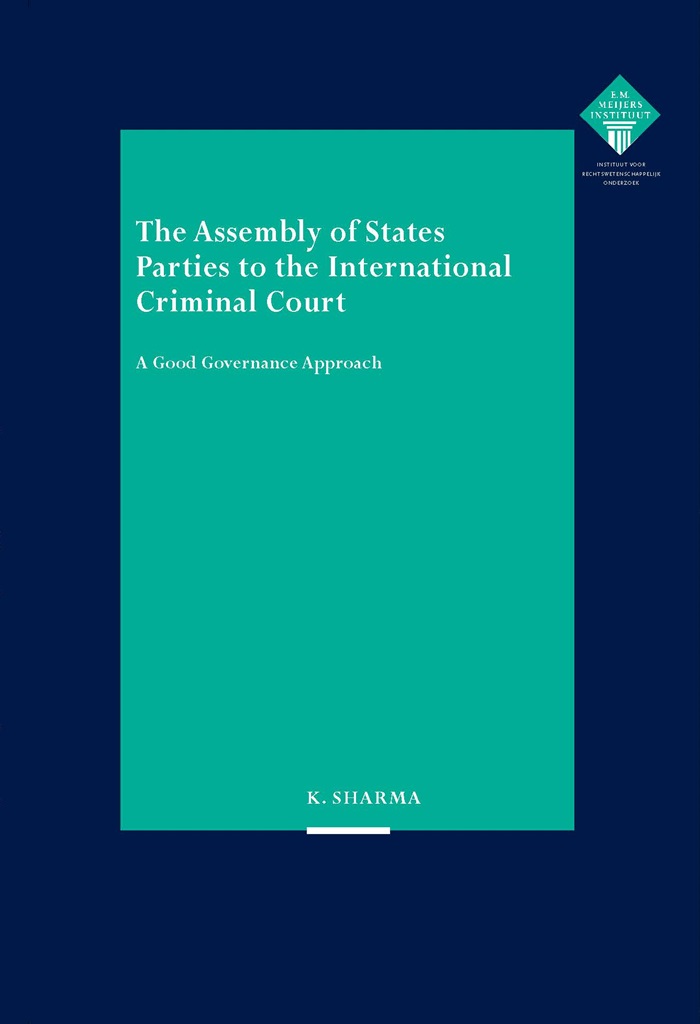
The research within this dissertation of Kritika Sharma is based on an acknowledgment that the Rome Statute of the International Criminal Court (ICC) not only established a permanent international criminal court with wide-ranging jurisdiction and its own legal personality but also established the Assembly of States Parties (ASP) as another institution under the Statute. This dissertation focuses on the ASP and its role as the Court’s international judicial governance institution by analysing how it currently exercises governance over the Court and how it should exercise good governance over it. It then establishes a standard of good governance applicable to the governance of the ICC. This is based on eight principles: participation; consensus-oriented; the rule of law; accountability; transparency; responsiveness; efficiency and effectiveness; and representation and gender-sensitivity, that act as pillars of such good governance. Finally, it applies this standard of good governance to the exercise of five governance functions by the ASP: the election of the judges of the Court; election of its Prosecutor; exercise of management oversight; adoption of legislative amendments; and the adoption of the Court’s budget.
The results of this research confirm that these functions, the exercise of which the ASP is tasked with, by their very nature, necessarily have an impact on the work of the Court itself. It further demonstrates the influence that the ASP wields over the mandate of the Court, including its judicial and prosecutorial mandates, through the exercise of these key governance functions. In particular, the analysis in this dissertation draws attention to the fragmented nature in which the ASP exercises its governance over the ICC, demonstrating how attempts to de-politicize the procedures within the ASP have resulted in increasing politicization highlighting the tension between the legal and the political. Further this analysis brings to light the flexibility inherent in the ASP’s exercise of its governance functions which has both positive and negative effects depending on how this flexibility is relied on and for what. The research demonstrates that while the governance of the ASP should be facilitative in line with the objectives underlying its own function-based establishment, there is a need for the ASP to expressly adopt such a facilitative focus to its governance. The ASP’s governance, like any power, is not unlimited, and the ASP remains bound by the Rome Statute which established it for the exercise of these governance functions. Thus, this research argues that this limitation to the ASP’s governance should manifest in the form of a facilitative scope of the ASP’s governance. On this basis, this dissertation advances certain recommendations to ensure that the ASP’s governance over the Court adheres to this standard of good governance and is facilitative towards the mandate of the Court.
Sharma defended her thesis on April, 30th at Leiden University. The dissertation was written under the supervision of prof. dr. Niels Blokker and prof. dr. Sergey Vasiliev.
Kritika Sharma
The Assembly of States Parties to the International Criminal Court. A Good Governance Approach
This study is part of the Law School’s research programme ‘Exploring the Frontiers of International Law’.
Meijers serie: MI 440

